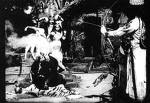
This month we read our first title set mostly in Pakistan, by Daniyal Mueenuddin, the discussion that followed took some lively turns. The largest sense was that the book was very well written and pretty depressing. The cleavage between those that admired the book and those that didn’t can be described thus: those that felt it could not be liked because there is no one likable in the story, and the others (majority) whom nevertheless found the writing very accomplished. Anne made a comparison to Joyce’s The Dubliners, in which most of the characters are darkly written. The themes of inheritance and class maintenance were also discussed. Kate P. noted that the stories have a sense of Nietzsche’s philosophy, that power is at the center of all relationships, and the jockeying for power the central motive for every character at every class level. Mueenuddin seems to be criticizing Pakistani society on this basis. However many noted that this is not unique to Pakistan. On the other hand, Amardeep mentioned that due to semi-socialist acts of the Indian government mid- century, the zaminders’ land holdings were broken up and some of their hegemony was broken down, therefore in contrast to India, his sense is that Pakistani society has remained more feudal than India’s. Amardeep read some passages that he found particularly brilliant in their turn in meaning from the beginning to the end of a paragraph, and revealing of much in a few words. An interesting contrast was made between Mistry and Mueenuddin, in which we realized that both are good at exposing the motives of opposing characters but Mistry has a gift for making us like them despite ourselves. Shalini liked the style of the stories very much as well, admiring their artistry.




2 comments:
From Sonan: I enjoyed it very much overall, especially the style of prose which I thought was not very contemporary and had almost a last-century feel to it.
I know he was presenting a very upper-crust social lifestyle as it exists in Pakistan ( I read some of his interviews and his father was a feudal land owner in Pakistan so he had first hand experience living it) but Pakistan is so much about its politics that I wish he'd touched upon it more in his stories.
I also wish he had not repeated the 'young woman using feminine wiles to trap older richer man' in his female characterization so much.
My favorite story was about the magistrate saving his wife's favorite servant ( About a Burning Girl). I thought it was very gritty, and the story's casual tone only underlined the grim reality as it exists not only in Pakistan, but the subcontinent.
FYI I just learned that Daniyal Mueenuddin’s mother is an American. I wonder if we see many bicultural aspects to his work. See Wikipedia article.
More on Pakistan per a recent post on SASIALIT
>>>> "The question of Pakistani identity is fraught with paradoxes and ambiguities. Unlike its nearest neighbours - most notably India, Iran and China - it has no grand narrative of cultural heritage; created to serve a historical and political need, it has continuously to invent, and reinvent, its own story. Is Pakistan a religious state, or an
ideological construct? Does it, in spite of their much-articulated difference of religious identities (which have come to be seen as
ethnicities), owe its cultural heritage entirely to India, of which it is often considered an amputated limb? Or, in the rising tide of fanaticism that threatens to engulf some of its Muslim neighbors, is it fulfilling a long-neglected agenda of returning to spiritual roots it fulfilling a long-neglected agenda of returning to spiritual roots in the Arab or Middle Eastern world? These questions are addressed, with a dense and often bewildering proliferation of detail, by Aitzaz Ahsan in 'The Indus Saga and the Making of Pakistan'. Ahsan is a lawyer, which makes the breadth of his historical, sociological and cultural research all the more impressive."
Post a Comment